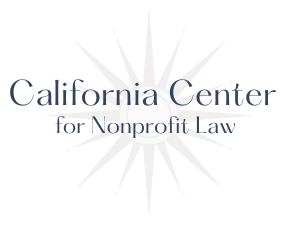
Form 1023-EZ: Highlights and Pitfalls
In 2014, the Internal Revenue Service (IRS) introduced IRS Form 1023-EZ. The purpose of this form was to streamline and simplify the process of establishing a tax-exempt organization under §501(c)(3). However, at least one tax consultant has determined that the advent of Form 1023-EZ has led to major errors that have harmed thousands of small charities.
In 2014, the Internal Revenue Service (IRS) introduced IRS Form 1023-EZ. The purpose of this form was to streamline and simplify the process of establishing a tax-exempt organization under §501(c)(3). However, at least one tax consultant has determined that the advent of Form 1023-EZ has led to major errors that have harmed thousands of small charities. More specifically, the use of Form 1023-EZ has led to the misclassification of as many as half of private foundations rather than public charities. These errors have led to charitable organizations expending unnecessary IRS fees, missing out on crucial funding opportunities, and overburdening already stretched IRS resources. The California Center for Nonprofit Law is here to ensure that you are aware of tax and other legal issues that may affect your nonprofit organization. We will advise you of any measures you must take and help you implement them to remain compliant. Contact us today at (949) 892-1221 and see how we can help.
The Benefits of Form 1023-EZ
The benefits of 501(c)(3) or federal tax-exempt status can be substantial for a charitable organization. In addition to the obvious tax advantages for the organization, donations made to tax-exempt organizations are generally tax-deductible.
The IRS developed Form 1023-EZ to allow smaller charities to obtain 501(c)(3) status more quickly and efficiently. The filing fee is much lower – $275 instead of $600 for the regular Form 1023. Furthermore, while Form 1023 is 12 pages long, Form 1023-EZ is only three pages long, making it much easier to fill out and complete.
However, only certain organizations qualify to use Form 1023-EZ. The basic requirements are as follows:
· The organization must have had a gross income of less than $50,000 in each of the past three years;
· The organization must estimate that it will have a gross income of less than $50,000 in each of the next three years;
· The organization’s total fair market assets must have a value of less than $250,000;
· The organization must have been formed in the United States, with a mailing address in the United States;
· The organization must be a corporation, unincorporated association, or a trust (not an LLC); and
· The organization cannot be a for-profit corporation or a successor to a for-profit entity.
Additionally, some types of organizations typically cannot use Form 1023-EZ. These organizations include schools, churches, hospitals, agricultural or medical
research organizations, credit counseling organizations, qualified charitable risk pools, health maintenance organizations (HMOs), and public safety foundations.
The Problem with Form 1023-EZ
Part IV of Form 1023-EZ – Foundation Classification and its instructions contain awkward wording and inconsistent guidance that have led many 501(c)(3) applicants to classify themselves as private foundations, even though they meet the IRS guidelines for public charities. Oddly enough, Part IV of Form 1023-EZ does not refer to the public charity test that applies to most applicants. The more detailed description of the public support test for new charities in the instructions does not appear in any other IRS guidance. This conflicting guidance and confusing forms have led to the misclassification of what appears to be thousands of organizations.
in 2013, before the IRS implemented Form 1023-EZ, less than 5% of newly approved 501(c)(3) were classified as private foundations. However, in 2014, after the IRS implemented Form 1023-EZ, this percentage increased substantially, and by the end of 2014, misclassified organizations had already begun applying for reclassification.
At the end of 2022, almost 9,000 organizations classified as private foundations, or 20% of those organizations that became private foundations from 2014 to 2022, using Form 1023-EZ, have been reclassified. Another 30% of those organizations no longer existed. However, 75% of the private foundations that received that status before 2013 and the introduction of Form 1023-EZ still had that status in 2023.
Allow Us to Meet Your Legal Needs
The California Center for Nonprofit Law dedicates its efforts to the daily legal matters that charities face, including ongoing compliance with changes in the law. Call us today at (949) 892-1221 and schedule a time to discuss your case. Get your questions answered and learn more about how we can help.
